Orphans in Indonesia

Peregrina's Journey
Peter and Margie Benziger
Sun 31 Jul 2011 14:23
Position Report - 10:09.375S 123:34.454E
Orphans in Indonesia
Margie and I
were lucky to grow up with two loving parents and our daughters have had the “dubious”
pleasure of our company for 30 years now.
The word “orphan” doesn’t pop up much
in middle-class American conversation. But, that’s not the case in most of the rest
of the world as we found out recently.
Peregrina is
now in Kupang, West Timor, Indonesia. While ashore, we met Alfredo (English
translation of his Indonesian name) who runs an orphanage named ‘Sesawi Panti Asuhan.’ We arranged to travel the next day with him
to the orphanage.
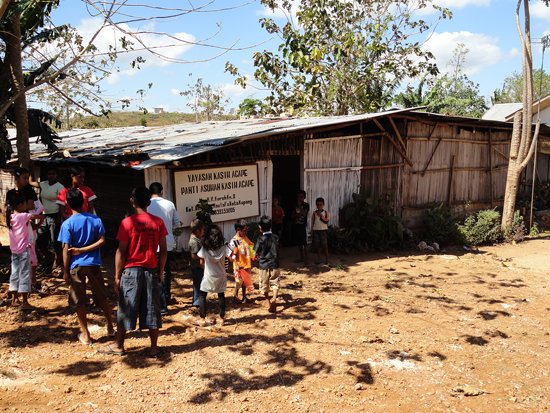
This is the
main entrance to the orphanage. It is about an hour outside of Kupang, in a
very rural area accessible via a dirt road.
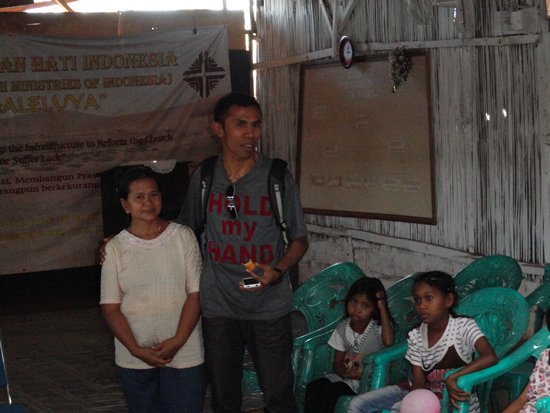
This is
Alfredo and his aunt, who is the head manager. The orphanage was started by
Alfredo’s father many, many years ago.
He grew up without parents and knew the pain and hardship of life as an
orphan and vowed he would do everything he could to help others who were in the
same position.
While a number
of the kids were left here by parents who simply could not afford to feed them,
surprisingly, most of the children at Sesawi Panti Asuhan were orphaned because
of water-related accidents. Many of
their parents drowned in boating/fishing accidents and some in catastrophic
cyclones (hurricanes) or typhoons. It’s
amazing that, in this island nation surrounded by water, many people don’t know
to swim!
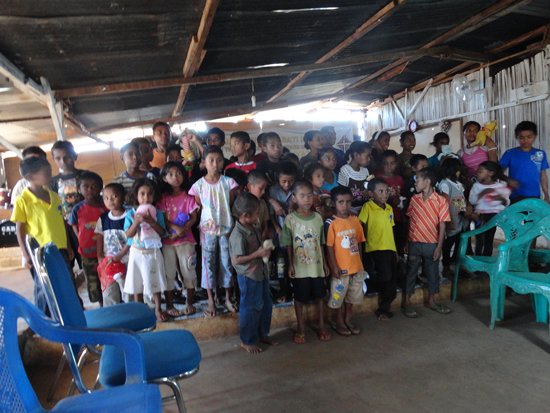
Over the
course of the past 28 years, Alfredo’s family has taken in hundreds of children
and, currently, there are 92 kids - newborns to age thirteen - at the orphanage
in buildings located on land leased from the local government.
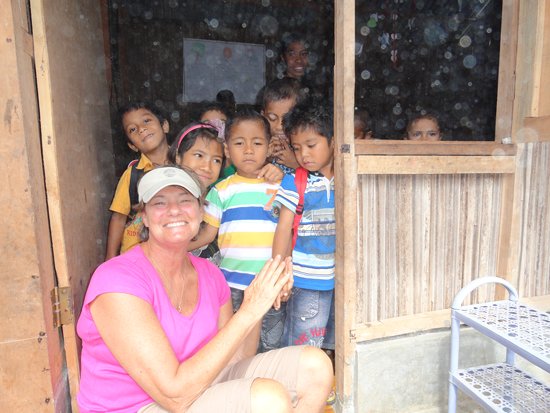
The older
children attend public school but the pre-school kids go to school operated by
the orphanage which is very small and with almost no educational books or
visual aids. We visited the school for the younger kids, which is located
several kilometers from the orphanage on another plot of leased land. Because
it is quite a distance from the orphanage, the kids have to be taken by multiple
motorbike trips (three kids plus the driver!) back and forth each day.
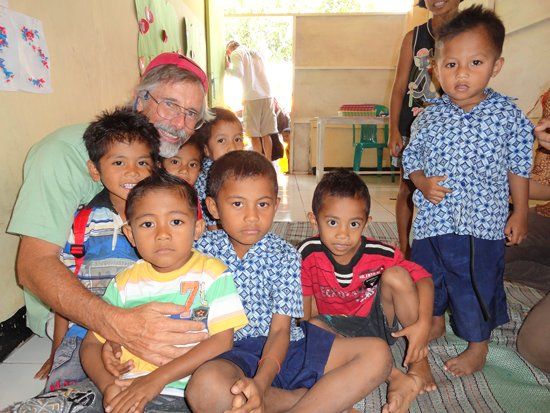
The kids had
not seen Westerners close up but, after the initial shyness wore off, they
became intrigued and friendly. We practiced our Indonesian phrases and it was
pretty clear that our pronunciation was terrible since they would just giggle
when we talked.
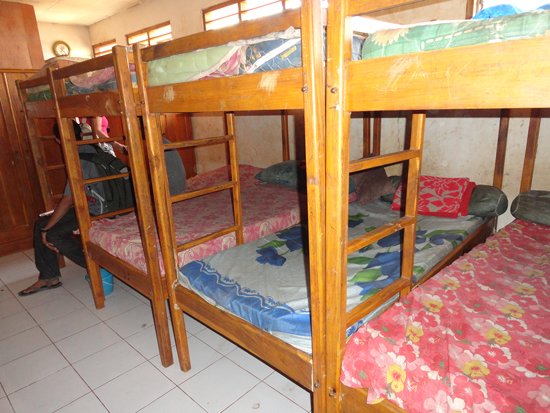
This is the
boys’ room. They sleep three boys to each bed but there still are not enough
beds. Some children do have to sleep on
the floor but they seemed to have additional mattresses piled up in a corner.
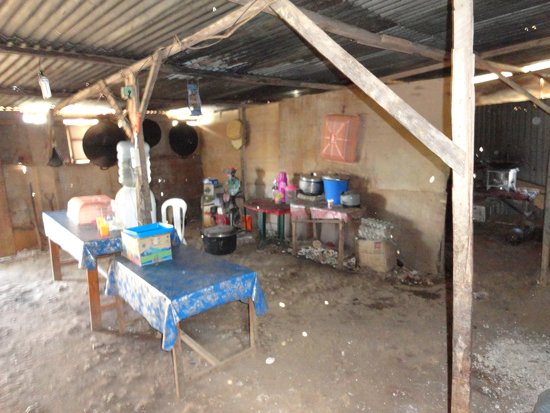
This is
where the food is prepared. The food is very basic with rice and root
vegetables, such as cassava, being the staple items.
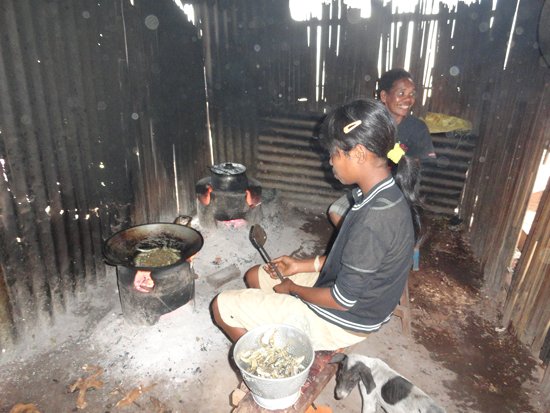
This is the
cooking shack. Cooking is done over open fires.
The
government provides 2,500 Rph per month per child which is about $3.00. This
does not begin to cover the cost so the orphanage grows their own food in gardens
and rice fields. The kids wake at 4:00am to begin their day of work and school.
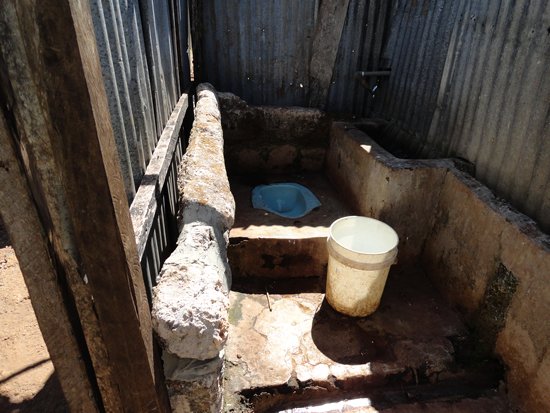
This is the
toilet for the orphanage. There is no roof so if it is raining and nature calls,
I guess you gottago...
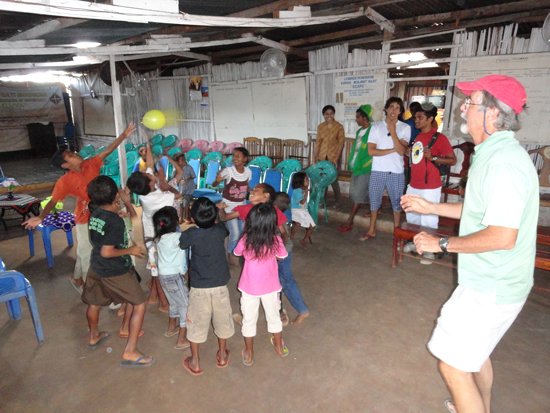
Prior to
leaving Australia we went to several stores and thrift shops and bought clothes,
toys, school supplies and silly gifts to give away while cruising throughout
Indonesia. We took a couple of bags to
the orphanage. The looks on their faces
when they received these gifts was priceless.
You truly get more than you give…
One of the
biggest hits was the balloons which we blew up for them. We started a game
where the balloon had to be kept in the air and each time you hit it you had to
give a big yell. It went on and on and on...
The children
sang and danced traditional folk music for us and at the end of the program
they belted out a rousing version of the Indonesian national anthem.
We had a
wonderful time and hope that the kids did too.
Sukses ya! (All the best)
Semoga bias cepat bertemu lagi (Hope to see you again soon)
Peter and
Margie